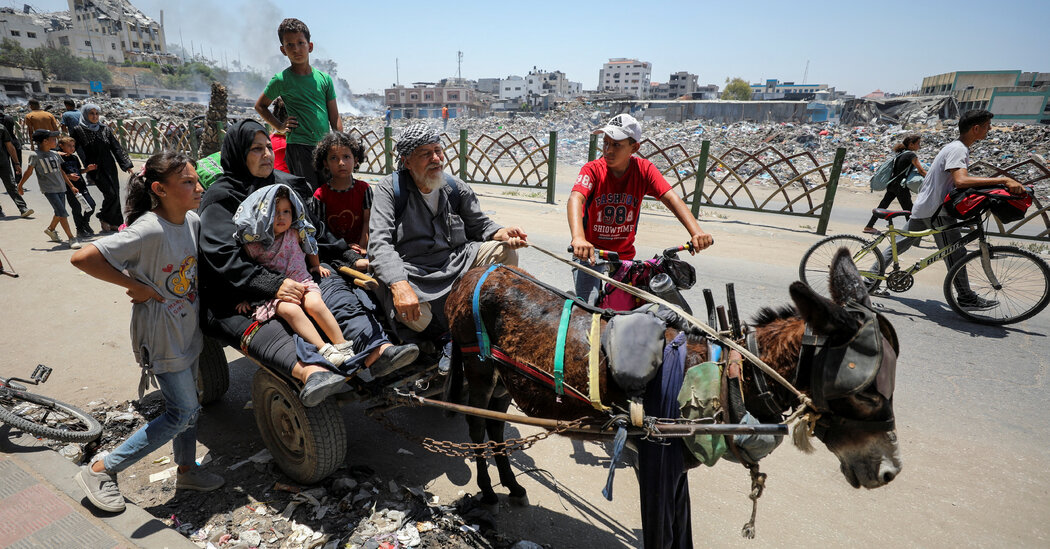The witness, Mohammed Qraiqea, a researcher with the Euro-Med Human Rights Monitor advocacy group who was in Shajaiye on Thursday, said that artillery shelling, occasional airstrikes and drone fire were continuing in the afternoon.
“The tanks have advanced in a limited manner so far on the outskirts of the neighborhood,” he said Thursday afternoon. “But by now most people had evacuated,” prompted by the heavy bombardment, he added.
Israeli troops invaded northern Gaza in October after the Hamas-led attack in Israel, taking over territory and pushing south as they took over Hamas strongholds, but they have yet to decisively defeat the armed group. Shajaiye, one of Gaza City’s largest neighborhoods, is home to a battalion that is considered one of the strongest in Hamas’s military wing. It is unclear how big a presence Hamas now has there.
Hamas has taken advantage of the urban areas in Gaza to provide its fighters and weapons infrastructure with an extra layer of protection, running tunnels under neighborhoods, launching rockets near civilian homes and holding hostages in city centers. Ghazi Hamad, a senior Hamas official, has said that the group tries to keep Palestinian civilians out of harm’s way.
Shajaiye was the site of heavy fighting earlier in the war. In December, nine Israeli soldiers were killed there on what the Israeli military reported was one of the deadliest days of the war for its forces.
In recent months, some residents had returned to Shajaiye as Israeli forces turned their focus to southern Gaza. Mohammad al-Bahrawi, 65, who had returned with his family to their home in Shajaiye in March, was forced to flee again on Thursday by the strikes. He said he saw crowds leaving “like a torrent.”
“I couldn’t even believe that this many people were still in Shajaiye,” he added.
Mr. al-Bahrawi said that he was not aware of the Israeli evacuation orders that the military posted on social media on Thursday.
“We got out by God’s mercy,” he said, adding that “we were hearing explosions from every direction.”
When the sounds of the explosions seemed to subside, Mr. al-Bahrawi walked with his wife and children to the courtyard of the Ahli Arab Hospital, seeing wounded people being pulled out from under rubble along the way.
At the hospital, they were “just sitting there until God helps us and we find an apartment to stay in,” he said.
Myra Noveck contributed reporting from Jerusalem.
